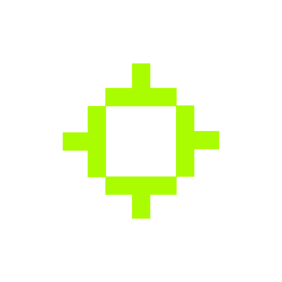
A driver needs to get from Tel Aviv to Haifa. He has several alternatives for this route, and the answer of which route is the shortest is simple and injective. Finding the quickest route, however, involves multiple variables that complicate the matter. Each such requires dynamic measurement and evaluation, and the entire mechanism needs to recalculate the situation at every given moment. Thus, behind a user interface that has become as natural and trivial as breathing to us, we find a mathematical riddle with multiple unknowns as well as complex algorithmics. In short: computer science.
“Computer science is not programming,” emphasizes Dr. David Faitelson, head of the school of software engineering and computer science at Afeka – the Academic College of Engineering in Tel Aviv. “Computer science is what the name says: a science. It’s founded on a broad theoretical basis – mathematical, algorithmic – which lets us boil down complex problems and find solutions for them. And just like the difference between a kid who learned to play music and a Philharmonic violinist who’s devoted his entire life to it, computer science isn’t something you can learn in a crash course of a few months.”
The current era of open source and services, which let us take ready-made code and programming plugins and requires almost no coding from scratch, actually intensifies the industry’s need for computer science alumni. “The massive shortage forces many companies to hire even people with basic programming knowledge and to try and train them as they go. But the truth is that, for solving the more complex issues that the industry deals with, that’s not enough. The benefit that companies and organizations can reap from computer science alumni is infinitely greater. That’s why our alumni have a major advantage in the job market.”
The hybrid track
In addition to the scientific depth, Dr. Faitelson stresses the need for groundedness and real-life work – something in which the ivory tower of academia doesn’t necessarily excel. In this regard, he says, Afeka’s studies represent a more hybrid model: a broad theoretical basis, but also with hands-on practice that students experience in a variety of projects. For example, through Ofek – an array of activities that complement Afeka’s formal curriculum and enable students from the various schools to join forces on multidisciplinary projects (and even get credits for it).
Ofek also includes hackathons and strong, productive clubs in fields such as aerospace, energy, robotics, and automotive engineering, with fantastic opportunities to discover new worlds and acquire vital skills – such as teamwork, critical thinking, leadership, and language fluency. Afeka understands, through its ongoing connection with industries in Israel and worldwide, that these skills are no less needed at today’s companies than scientific-professional knowledge.
“Afeka sees education not as a check in/study/check out proposition, but as a place to connect with others who share similar interests and do things together. You can build a small satellite, spec a robot, design a solar vehicle and watch it go in the field, or realize an actual project together with companies in the industry – through contacts that you make and a portfolio that you already start building as a student. Furthermore, most of our faculty consists of lecturers from the industry who are still involved in it. This is an advantage in itself, and very untypical of computer science, which tends to be a field of theoreticians. Having a faculty member from the industry, who spices up theoretical subject matter with real-life examples they’ve encountered – that’s unique to Afeka.”
In conclusion, Dr. Faitelson offers his own answer to a complex dilemma, the million-dollar question of computer science alumni: Startup or corporate? “Since the vast majority of our alumni have the privilege of choosing, they can – and definitely should – give thought to planning and managing their career more strategically. I believe it’s best to start at a large organization, learn the more standard institutional practices, and make beginners’ mistakes where there’s someone to look over you and correct them. Later on, with this important experience, the path to entrepreneurship or a leading role in a smaller company will already be relatively smooth and stable.”



Think Computer Science is Programming? Think Again
Share a link using:
https://external.afeka.ac.il/en/afeka-news/magazine/think-computer-science-is-programming-think-again/WhatsApp
Facebook
Twitter
Email
https://external.afeka.ac.il/en/afeka-news/magazine/think-computer-science-is-programming-think-again/